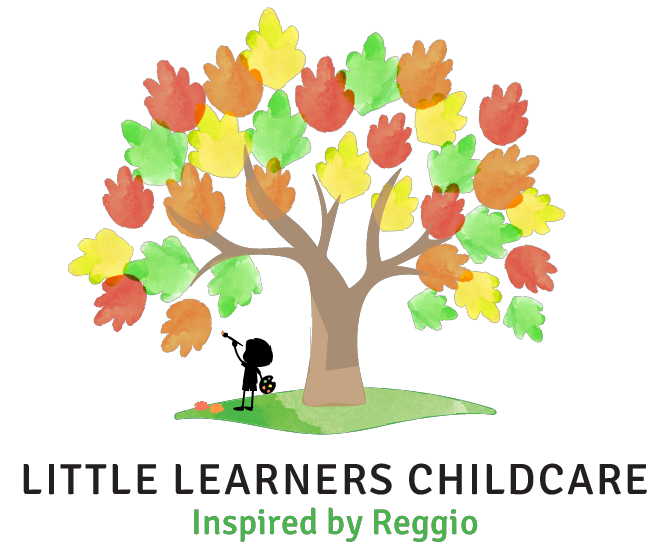Little Learners’ Curriculum
At Little Learners, we follow the Emergent Curriculum and the Reggio Emilia Approach.
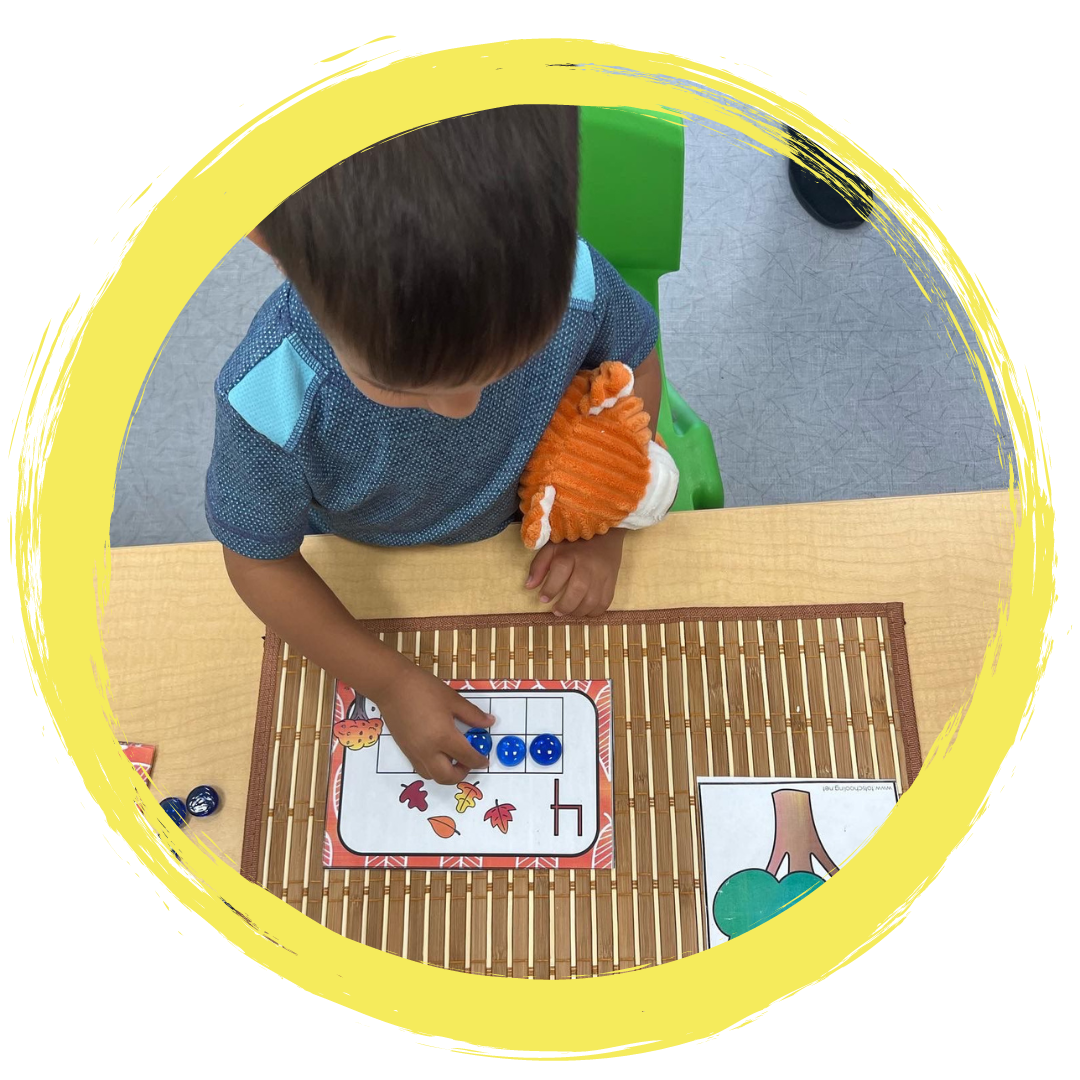
In our program, children are:
engaged in play and learning about things that interest them.
on their feet exploring each learning area freely.
use their hands to explore their environment.
Our curriculum allows children to communicate their ideas through their art through the use of natural materials found around them, through conversation with their peers and their educator, and through visual and tactile stimulation. All of these motivate a deep engagement with their surroundings and encourage their learning.
What Does Inspired By Reggio mean?
Education is a right for all children.
Education is a system of relationships.
The rights and potentials of children and their families are promoted in contexts of dialogue.
Children are active protagonists of their own growth and developmental process.
The Hundred Languages of children create connections.
Participation is the educational strategy.
Listening is a condition for dialogue and change.
Shared educational research of everyday life is a priority practice between adults and children.
Educational documentation gives value to individual, and group learning
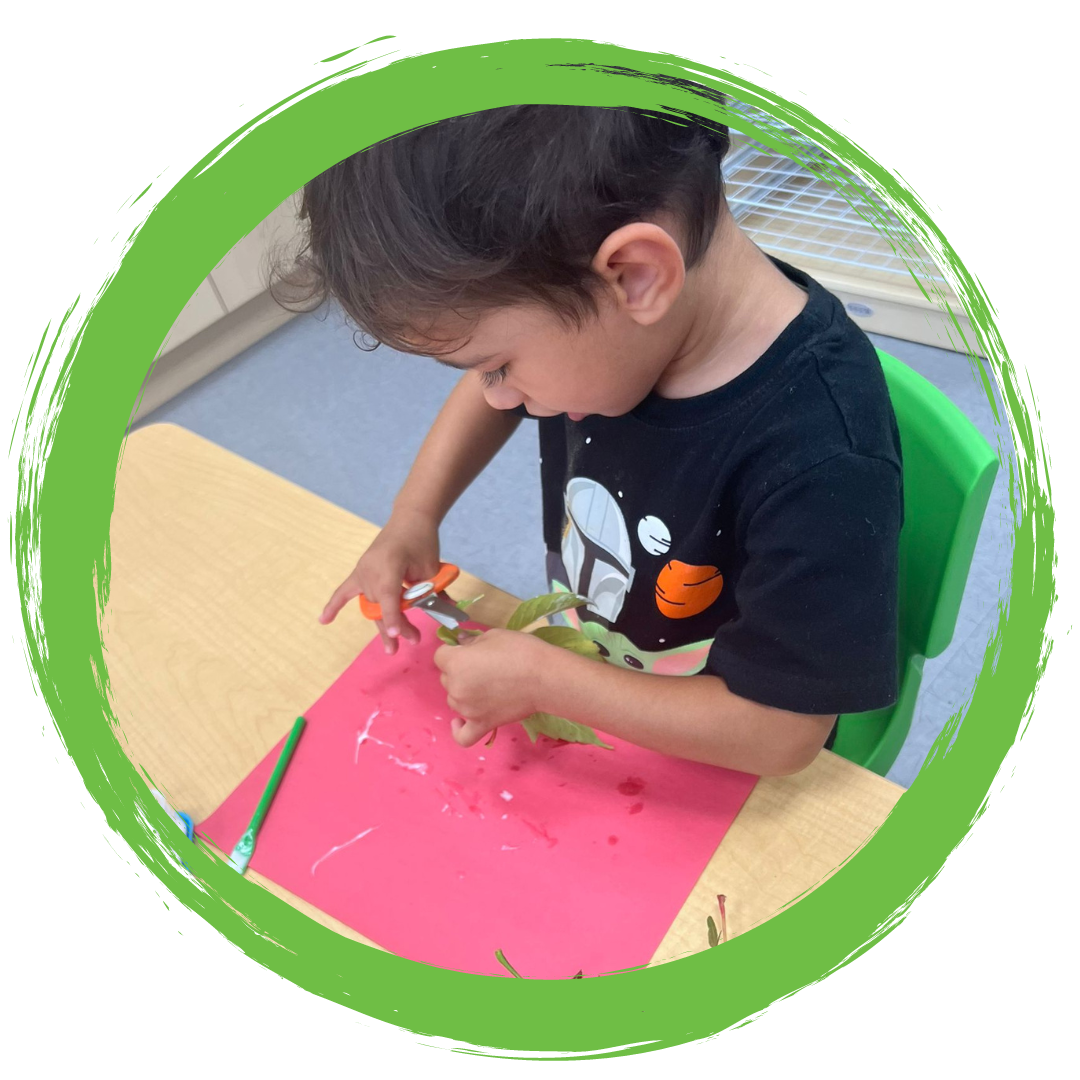
We Believe In
Diversity
Respect for family, cultural and community diversity is recognized in the development and delivery of service.
Respect
That every individual involved in our services should be treated with dignity and respect, and have access to available opportunities and services within our community.
Development
That families take an active part in the growth and development of their children.
Quality
That accountability is essential to the successful achievement of our programs and goals.
We are accountable to the children and their families to whom we provide services for.
We are accountable to our community.
We are accountable to the funding sources, in terms of the services offered, and the use of the resources with which we are entrusted.
What Is An Emergent Curriculum Inspired By The Reggio Emilia Approach?
Educators observe the children, paying close attention to the children’s unique interests and development.
Educators use Reggio Inspired provocations, educators provide activities and long-term projects.
Little Learners’ Childcare believes that children have the capacity for representing ideas in a wide variety of symbolic and graphic modes: The Hundred Languages of Children.
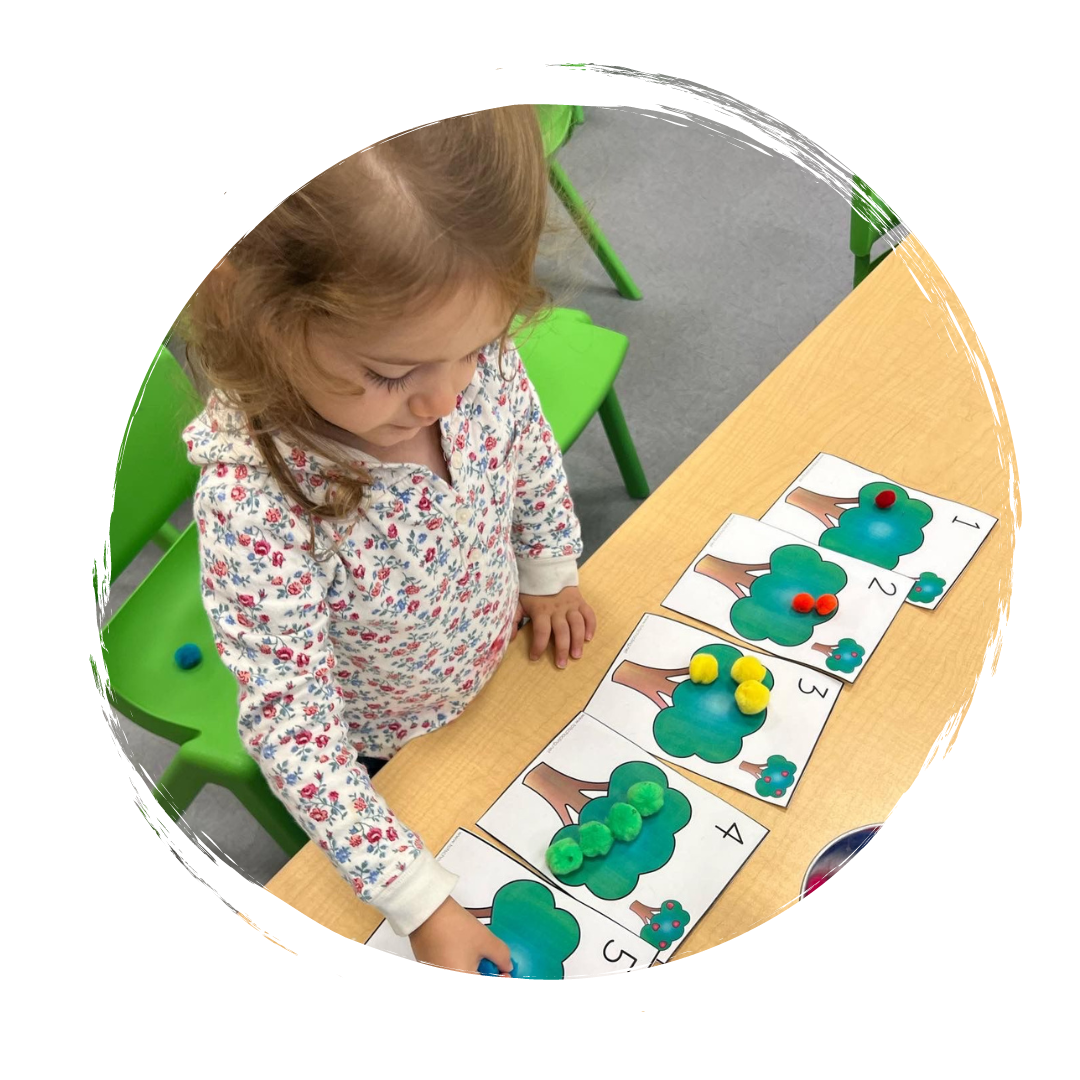
The Hundred Languages of Children
Children need to develop the tools to investigate and make sense of an object about which they are curious.
Teachers greatly emphasize various visual and expressive arts as symbolic tools or languages of the children that should be cultivated.
The approach emphasizes the importance of children’s symbolic language.
This is further explained through the following fundamental components of our curriculum:
Capturing The Image of the child
Teachers see children as competent, full of potential, and active participants that are constructing their own knowledge through interactions with others.
Teachers try to understand the child’s viewpoint and abilities.
Teachers are aware of the children’s potential and construct all their learning and the environment of the children’s experience to respond appropriately.
As children participate in their activities, it is important for them to make and correct their own errors. This approach provides the necessary opportunity to become practised at creative problem-solving.
Teachers neither provide solutions nor leave children to their own resources.
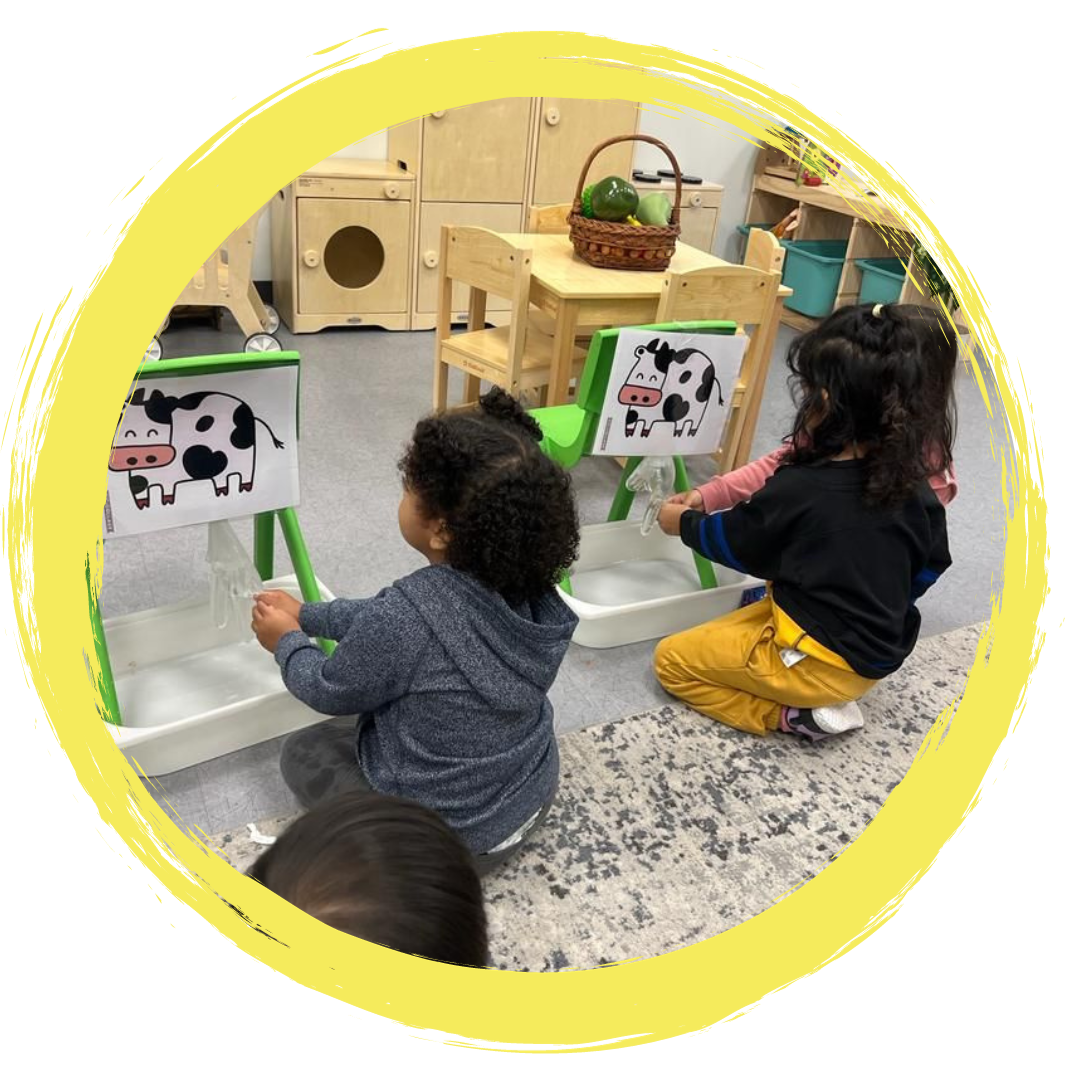
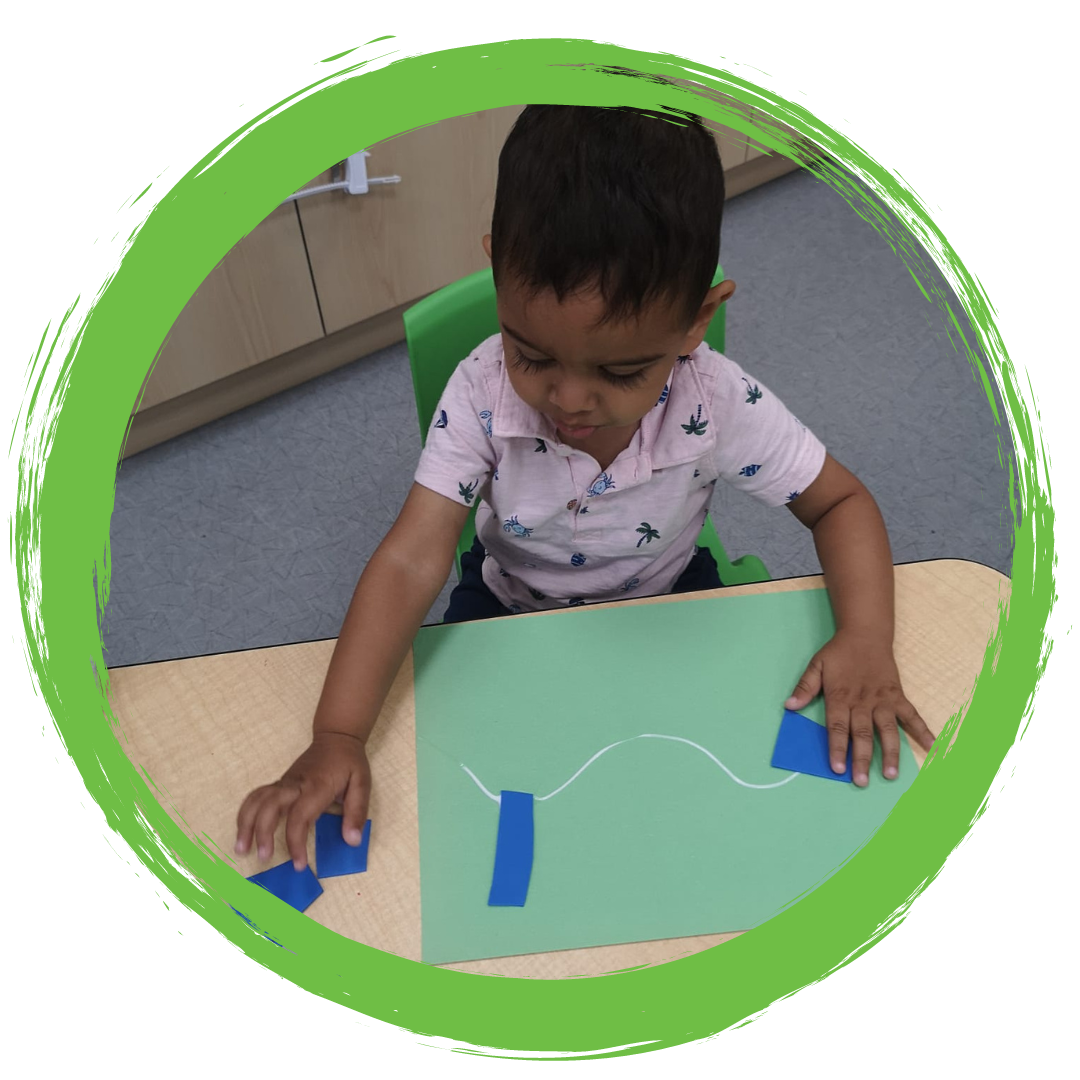
Reggio-Emilia Inspired Provocation
They are based on the strong conviction that learning by doing, group discussions, and revisiting ideas and experiences are the best way to understand and learn!
Key features:
It is an open-minded activity which does not have a prescribed outcome.
It stimulates ideas, initiative, and imagination in the child.
Prompts exploration - exploration stimulates the brain - stimulated brains create inspired learners.
Their distinguishing aspects include:
The teacher’s role is that of both facilitator and partner in learning.
Topic selection is based on student interests and experiences.
Collaboration occurs among students, teachers, and parents.
Investigation content emerges from students’ spiralling understanding.
Multiple experiences occur with the same and different media to represent cognition.
Repetition of activities takes place for different purposes.
Extended time may be devoted to an investigation.
Investigations are usually small-group rather than whole-class.
An investigation should include a broad range of concepts, such as math, science, art, writing, social studies, and music.
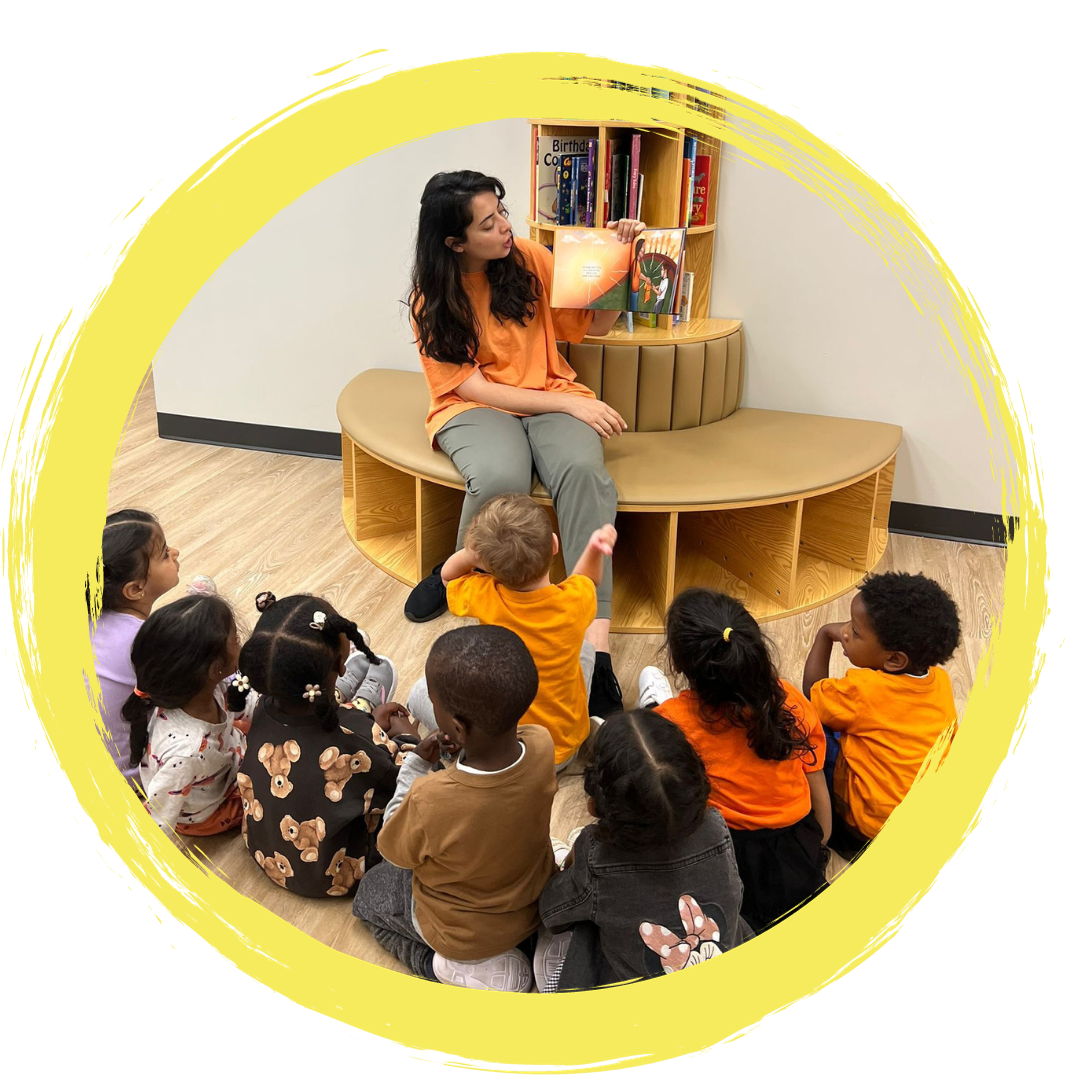
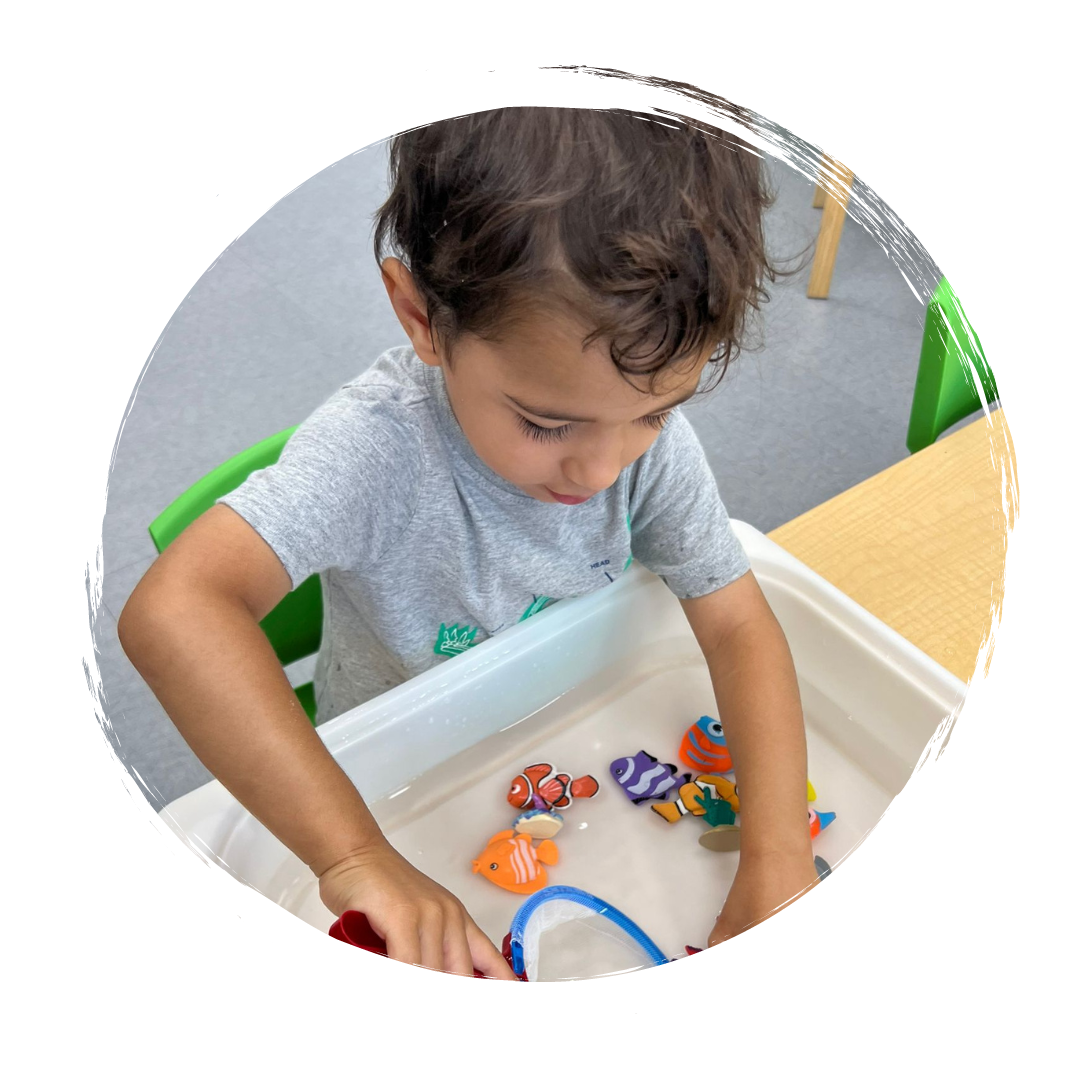
Role Of the Environment
Conscious use of space, color, natural light, displays of children’s work, and attention to nature, allows the environment to serve as another teacher.
The environment serves as an invitation to enter and participate.
The centre is the most visible aspect of the work done by teachers in Reggio Emilia. The appearance of our centre is like that of an excellent, experiential museum for children.
Intrigue and curiosity result from careful placement of materials and products. of children. Centres vary including arts, science, sensory, dramatic play, construction, reading/quiet nook, mathematics, language, and provocation.
Adults and children personalize each school with their message boxes, art, documentation panels, and investigations. Many panels convey a sense of history and identity. Colour, light, mirrors, shadows, recyclable materials, and natural artifacts including plants are used to enhance the environment and provide discovery opportunities.
As suggested by Reggio teachers and other researchers, “children learn more effectively” when they can use a wide variety of materials in a wide range of activities and in cooperation with adults who help them ask good questions.
Role Of the Teacher
Teachers facilitate children’s ability to represent what they know and imagine. Teachers mediate between children’s current understanding and what they are on the way to understanding by:
reviewing and helping children tell the story of their own learning.
arranging new experiences, challenges, and problems; connecting children with resources.
facilitating group discussions and social interactions; reflecting children’s ideas.
and facilitating the development of new skills.
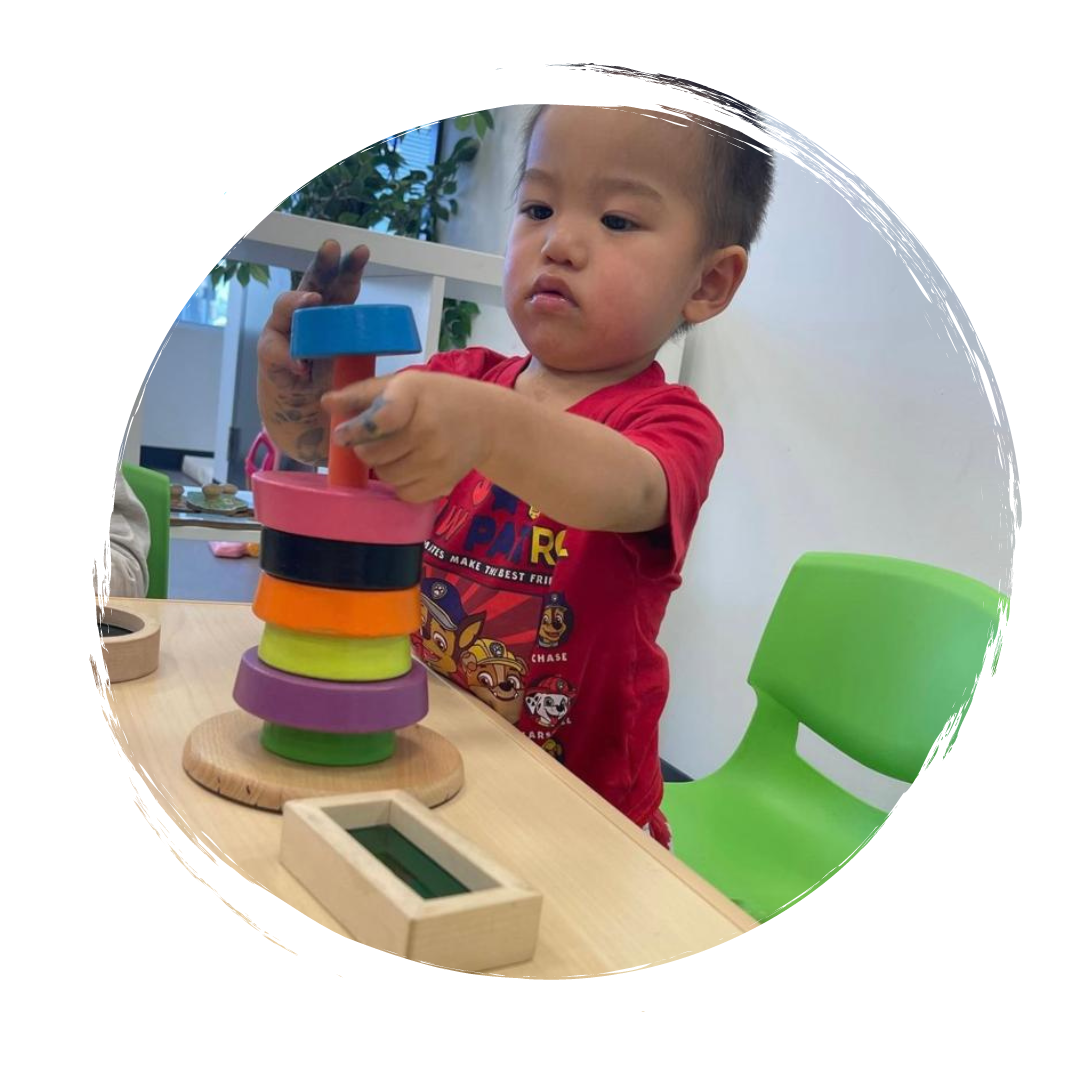
To know how to plan or proceed with the children’s learning, teachers observe and listen to them closely. Teachers use their understanding of them to act as a resource for them.
Teachers must also consider themselves to be partners in this process of learning which might proceed with pauses and setbacks, but which is an experience constructed and enjoyed together with the children.
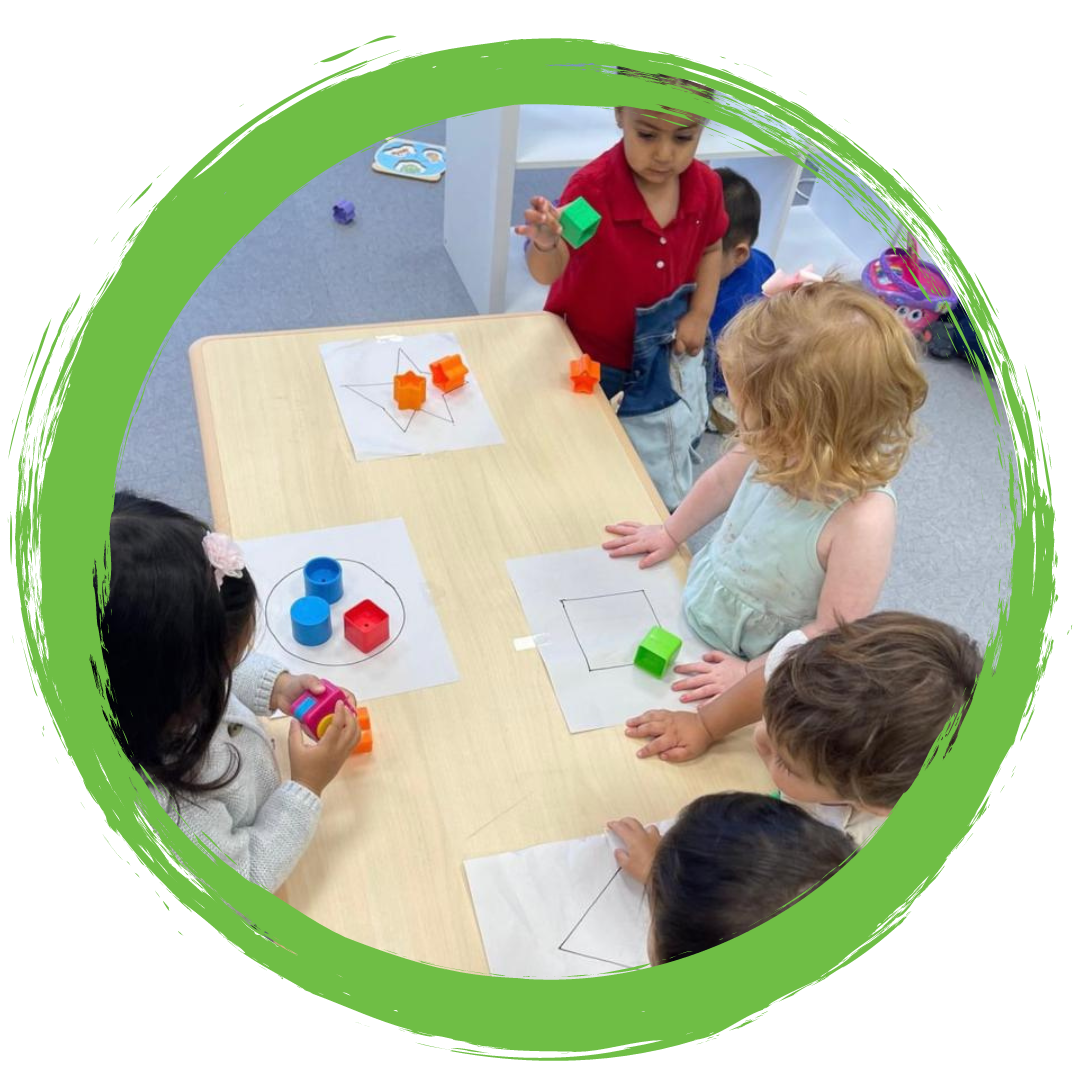
Observation And Documentation
The teacher’s role will become more of an observer and documenter, she also becomes a facilitator and co-learner.
Teachers facilitate learning by asking questions that lead children to other thoughts and further actions.
The teacher provides books and other resources on investigation topics that children examine to make relevant decisions.
The teachers learn how to work with children by continuously observing them.
The teachers document interactions and learning by audio, writing notes, and taking photographs of the children taking part in their activities or creating representations of their thinking and learning.
This media is arranged by the teachers.
Documentation has several functions:
Contributes to the extensiveness and depth of the learning gained by the children from their investigations and other learning.
Parents become acutely aware of their children’s experiences at school.
Parents are aware of their children’s experience and maintain their involvement.
It is important to research, allowing teachers to understand children better and to evaluate their own work, thus promoting their professional growth.
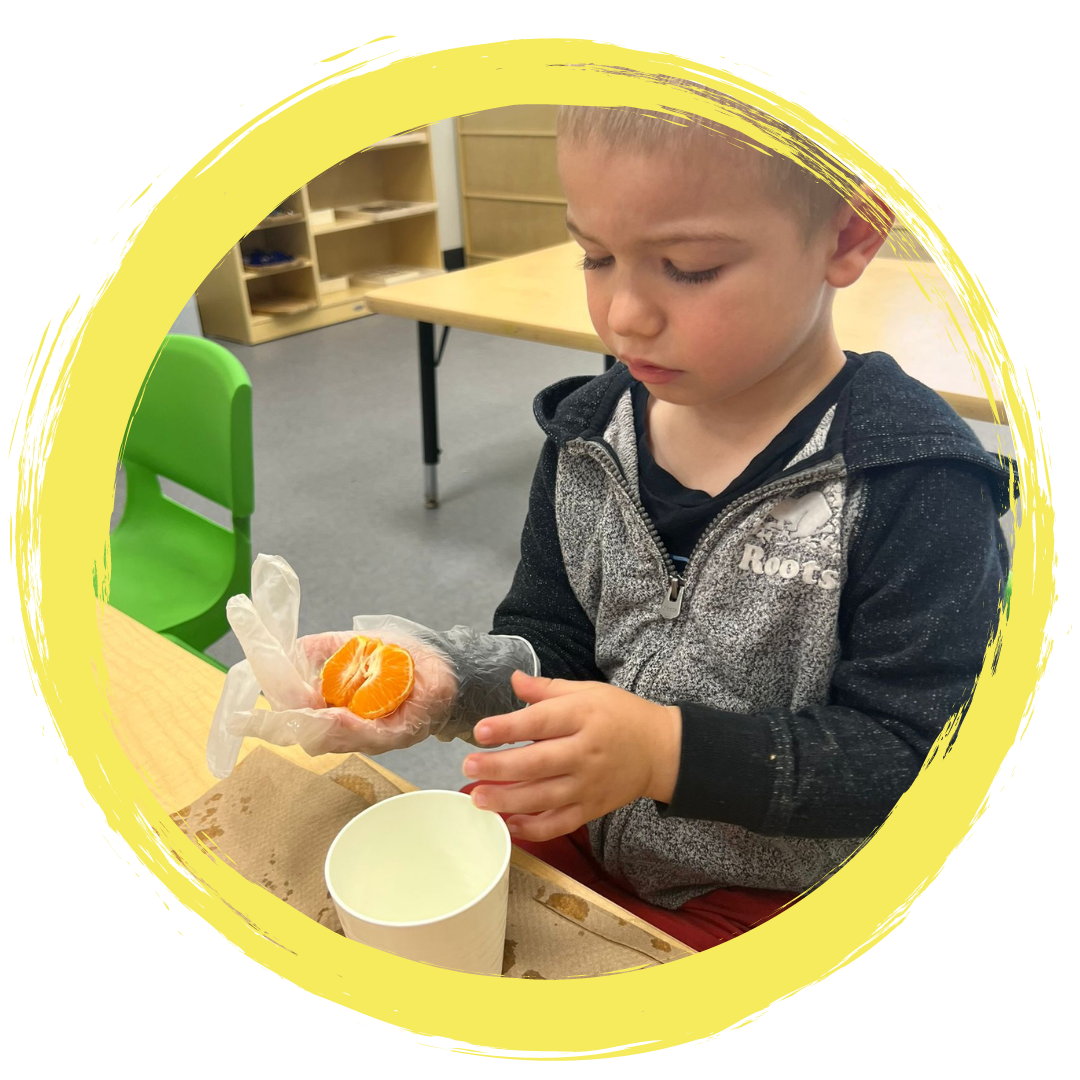
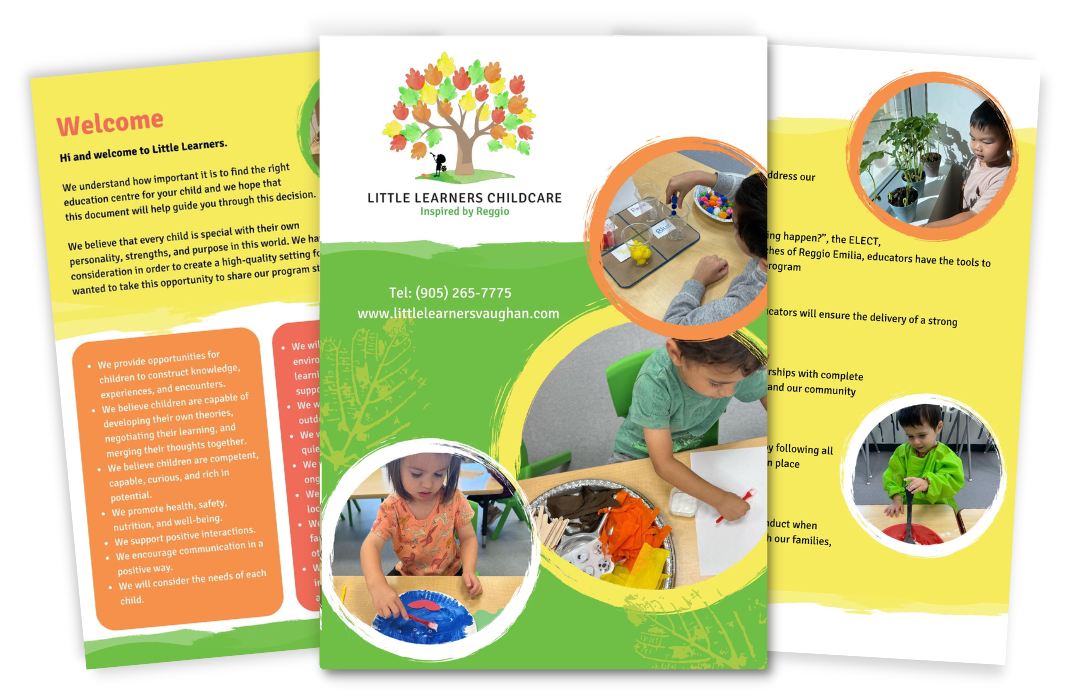
Get Our Free
Parent Pack
We’d love to send you a FREE parent pack, full
of helpful information about Little Learners …
Schedule a Tour at Little Learners
The best way to discover what makes Little Learners special is to see it firsthand. We provide engaging and interactive tours at our Woodbridge location daily and we look forward to meeting you soon and getting to know you and your child more!
Here’s What Our Happy Parents Have To Say
We LOVE our parents and carers and we're so proud to share some of their thoughts with you…
